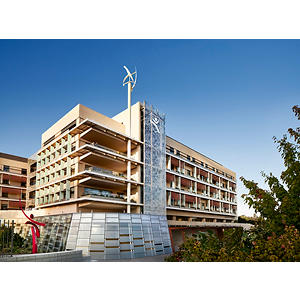
Jadene Wong, MD
Clinical Associate Professor
Pediatrics
Lucile Packard Children's Hospital Stanford
Packard Intermediate Care Nursery
725 Welch Road
Palo Alto, CA 94304
Teléfono:
(650) 497-8000
Localización

Packard Intermediate Care Nursery
725 Welch Road
Palo Alto, CA 94304
Mapas, direcciones y estacionamiento
Teléfono : (650) 497-8000
Trabajo y educación
Educación
University of California San Diego, San Diego, CA, 05/31/1993
Últimos años de residencia
Stanford Health Care at Lucile Packard Children's Hospital, Palo Alto, CA, 06/30/1996
Certificado(s) de especialidad
Pediatrics, American Board of Pediatrics, 1997
Idiomas
English
Conéctese con nosotros:
Descarga nuestra App: